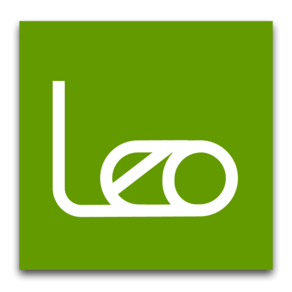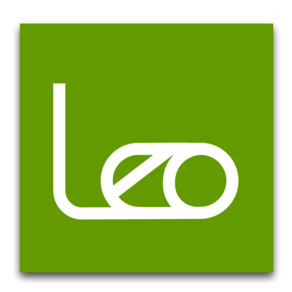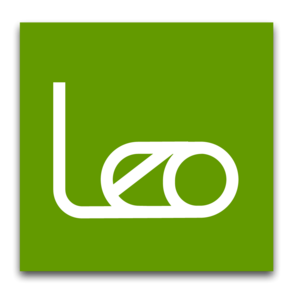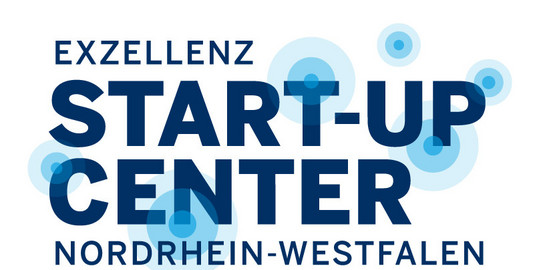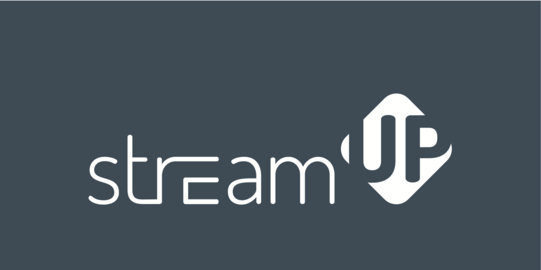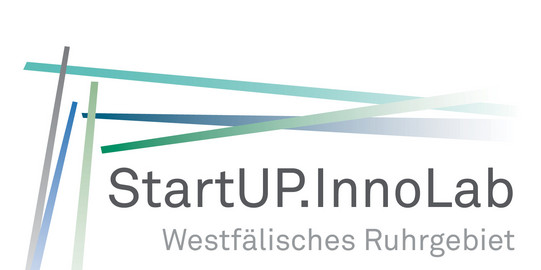Research Projects
Here you can find information about our current projects as well as a selection of projects we have already completed. The projects range from the dissertations of doctoral students to those with cooperation partners from science and industry.
Research projects
More projects
SEM
Synergetic Entrepreneurship Model
Intellectual capital reporting in schools
An intellectual capital statement that systematizes, records and makes measurable the intellectual capital of a school.
School subject economy
Development of a framework concept for study programs in NRW for the school subject economics
ICT_LEAP
Information and Communication Technology Learning Pentagram
Econoplexity
Complexity in economic learning processes
RuhrCCC
Ruhr Campus Career Competition
beopen
Business education open support system
widawiki
The business didactic online encyclopedia
heydeal
heydeal.de
Dissertations
Dissertations in progress
Completed dissertations
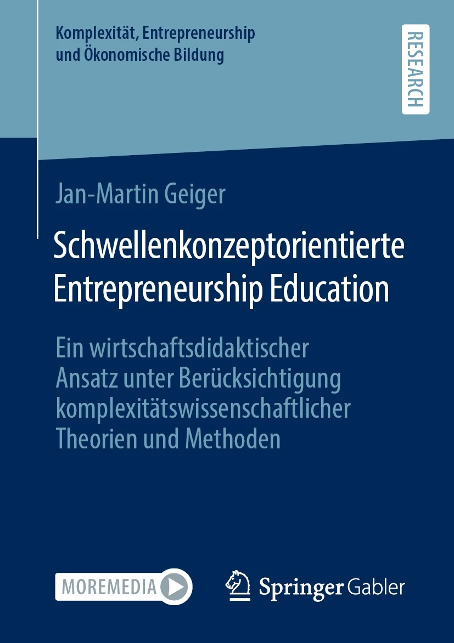
Topic: Schwellenkonzeptorientierte Entrepreneurship Education – Ein wirtschaftsdidaktischer Ansatz unter Berücksichtigung komplexitätswissenschaftlicher Theorien und Methoden
Information: Webshop Springer-Verlag
ISBN: 978-3-658-39478-3
Topic: The Entrepreneurial Mind – Torn between Beliefs, Attitude, Cognition, and Behavior
Information: The Entrepreneurial Mind – Torn between Beliefs, Attitude, Cognition, and Behavior (PDF)
Topic: Four Essays on the Complexity of Entrepreneurial Ecosystems
Information:
Four Essays on the Complexity of Entrepreneurial Ecosystems (PDF)
Topic: Dance Your Way through Entrepreneurial Irrationality, Errors, and Rejection: Unveiling Entrepreneurial Cognition, Decisions, and Learning under Complex Circumstances
Topic: Betriebswirtschaftliche und steuerliche Beratung von Start-ups durch Steuerberater. Eine empirische Untersuchung als Beitrag zur Steuerberatungswissenschaft und Entrepreneurship-Forschung
Information: Webshop Cuvillier Verlag
ISBN: 978-3-7369-7493-7

Topic: Nichtlineare Zeitreihenanalyse als neue Methode für Eventstudien
Information: Webshop Springer Verlag
ISBN: 978-3-658-24442-2
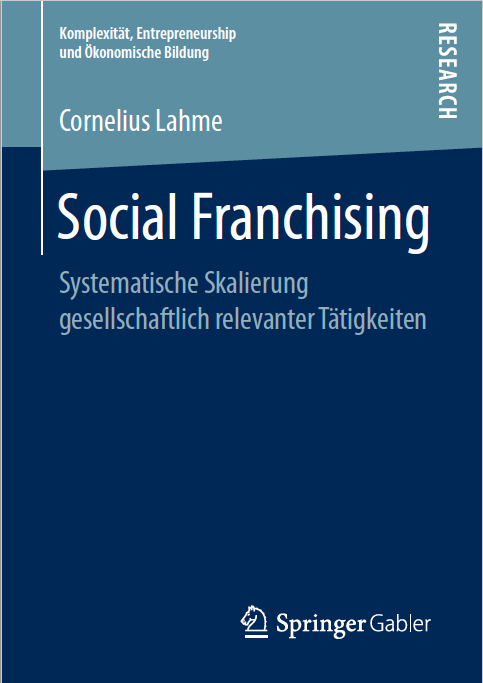
Topic: Social Franchising. Systematische Skalierung gesellschaftlich relevanter Tätigkeiten.
Information: Webshop Springer Verlag
Print ISBN: 978-3-658-21503-3, Online ISBN: 978-3-658-21504-0
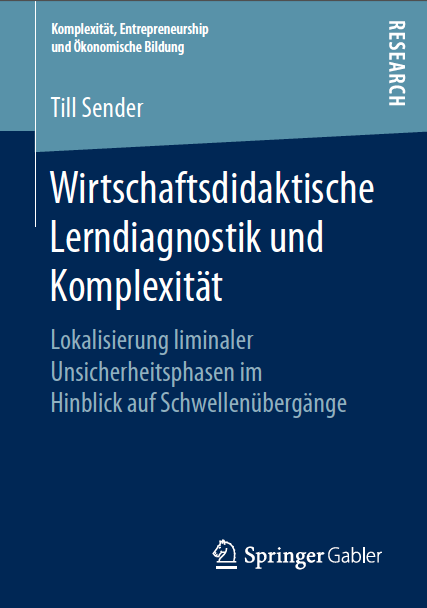
Topic: Wirtschaftsdiagnostische Lerndiagnostik und Komplexität. Lokalisierung liminaler Unsicherheitsphasen im Hinblick auf Schwellenübergänge.
Information: Webshop Springer Verlag
ISBN: 978-3-658-18947-1
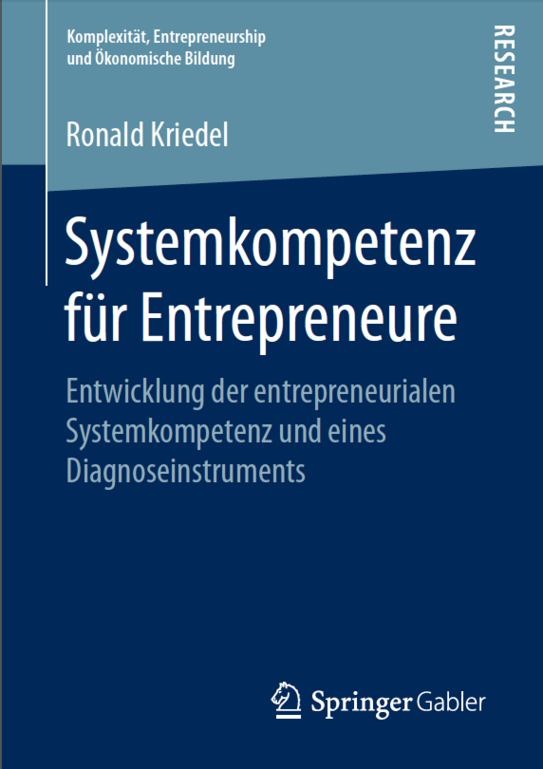
Topic: Systemkompetenz für Entrepreneure – Entwicklung der entrepreneurialen Systemkompetenz und eines Diagnoseinstruments
Information: Webshop Springer Verlag
ISBN: 978-3-658-18823-8
Topic: Employability und Geschäftsprozessorientierung - Modellentwicklung und Wirkungsanalyse im Kontext der kfm. Ausbildung
Information:
The demand for action and business process orientation in vocational training and the changed qualification requirements of the knowledge society as well as the resulting changed labor market promote the development of new innovative training concepts. One example of this is the Oberstufenzentrum für Bürowirtschaft und Dienstleistung in Berlin, which has implemented an ERP system in the full-time school-based training program for office clerks with the help of a new and innovative curriculum. This is aligned to business processes and structured in a spiral with learning situations. However, an empirical investigation of whether the change in training structures and the implementation of business process orientation have a positive effect on the vocational competencies of the trainees is still pending. This dissertation project investigates the impact of this concept on the skills and abilities of graduates and how these affect employability. To address this question, the concept of employability was examined in an international context. The following aspects were considered with a view to possible connections with the integration of an ERP system:
- Learning strategies as a necessary prerequisite for lifelong learning
- Problem solving competence
Use of new technologies With the help of an empirical research design, the following questions were examined, among others:
- Do the learning strategies of trainees develop to a particular degree during the course of their training and do these differ from the learning strategies of trainees in the dual system?
- Do graduates of full-time school-based training possess greater analytical and operational problem-solving skills than graduates of dual training?
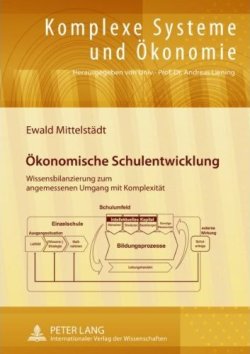
Topic: Ökonomische Schulentwicklung: Wissensbilanzierung zum angemessenen Umgang mit Komplexität
Information:
Model experiments and educational reforms in the German federal states (e.g. the model project "Selständige Schule" in NRW) show that schools are increasingly being made independent. This raises the question of their organizational development as well as their personnel development, ultimately their self-organization. How does my school function and why? Could it function even better? Will it still be able to survive five years from now under the ever-changing challenges? Can it respond quickly enough and correctly to change? These are some of the most important questions that leaders must ask themselves, even in schools.
To answer these questions, we must first succeed in making transparent the intellectual capital of a school, which exists in such a complex structure and in diverse relationships between, for example, teachers, learners, parents, regional business and the school board. In the sense of the theories of complex systems or synergetics, this means: This can best succeed if something like this is not ordered from above, but emerges in a self-organized way at the grassroots level. For this purpose, a special set of instruments is needed that offers the possibility of generating synergetic effects. An important contribution to this can be made by an intellectual capital statement, which systematizes the intellectual capital of a school, records it holistically and makes it measurable.
Vgl. Andreas Liening und Ewald Mittelstädt (2009):Wissensbilanzierung im Bildungsmanagement für eine deregulierte Professionalität im Berufsfeld Ökonomischer Bildung In: Seeber, Günher (Hrsg.): Forschungsfelder der Wirtschaftsdidaktik – Herausforderungen, Gegenstandsbereiche, Methoden; Schwalbach: Wochenschau; S. 238-253.
ISBN: 978-3631611630
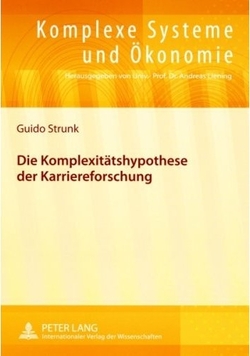
Topic: Die Komplexitätshypothese der Karriereforschung
Zugl.: Dortmund, Univ., Diss., 2008
Information:
One assertion runs like a thread through career research: careers are becoming increasingly complex. Some researchers are already mourning the death of the career. But the analyses presented in this book show that the number of job changes has not increased at all over the past 30 years. Does the much-vaunted complexity in new careers not exist at all? The fact that careers have actually become more complex over the past 30 years only becomes apparent when one takes a closer look. Only with the methods of chaos research can we show what was previously only assumed. Careers are becoming less and less predictable. Even if the number of job changes has not increased significantly, career interruptions are less predictable today than they used to be.
ISBN: 978-3631584798
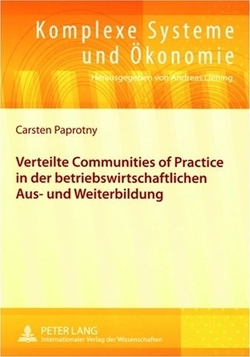
Topic: Verteilte Communities of Practice in der betriebswirtschaftlichen Aus- und Weiterbildung
Zugl.: Dortmund, Univ., Diss., 2006
Information:
Against the backdrop of an increasingly dynamic economic environment, both theory and practice repeatedly note the limited scope of traditional forms of business education and training for managers. The identification of inert knowledge and lack of transfer as a fundamental problem is rounded off by the diagnosis of insecurities in interpersonal interaction and weaknesses in work communication as central deficits of university graduates. The study develops a conceptual frame of reference for distributed communities of practice, which shows a theoretically sound and at the same time pragmatic way for the implementation of self-directed, cooperative and problem-oriented learning processes considering Internet-based knowledge exchange. The results of the empirical implementation show the innovative contribution of the concept with regard to the outlined problem areas and provide the reader with a detailed insight into the design of future-oriented learning processes in higher education and human resource development.
ISBN: 978-3631568323

